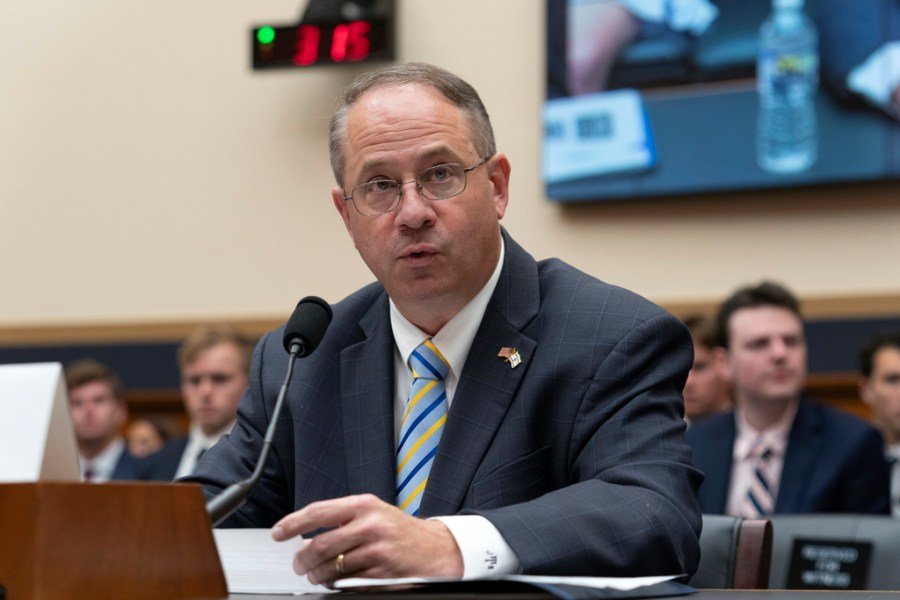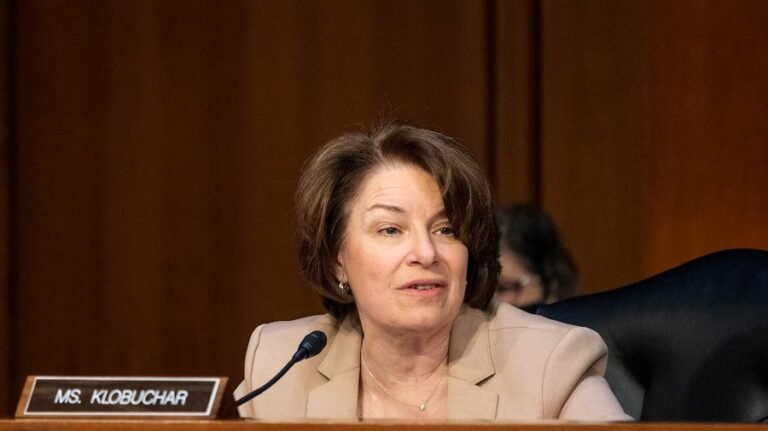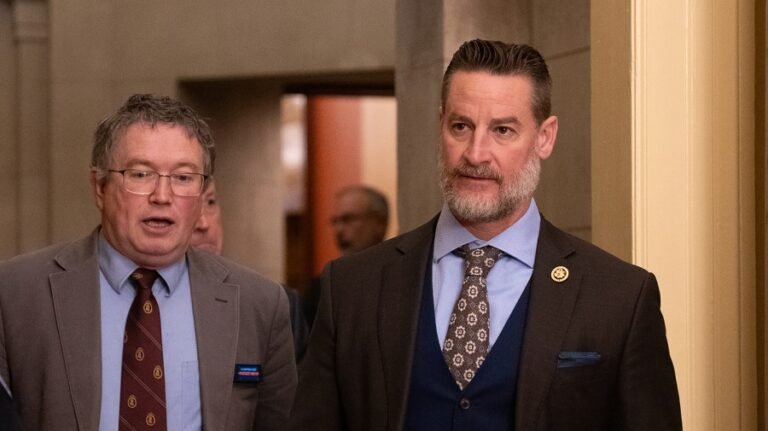
The Federal Election Commission’s current inability to execute key duties benefits no one. But President Trump has the power to begin restoring the FEC to a functional body.
What led the FEC to its current predicament? With only three of its six commissioners remaining after Allen Dickerson’s departure in April, the commission lacks the four-member minimum needed to conduct essential business. But the situation may soon become even more dire — and politically ironic.
Commissioner Trey Trainor has signaled that he may run for Texas attorney general, which would mean he, too, would leave the FEC. If he does, just two commissioners will remain, Shana Broussard and Dara Lindenbaum, both of whom are Democrats.
That scenario would leave us with the odd spectacle of Trump allowing a key federal agency to fall under total Democratic control — a remarkable and entirely avoidable situation.
Not that two Democratic commissioners could accomplish much. The FEC’s statutory framework requires at least four commissioners for many actions, meaning even a Democratic-controlled, two-commissioner agency would remain largely powerless. Broussard and Lindenbaum have solid reputations as thoughtful commissioners. Yet the FEC would continue to be hamstrung, unable to perform its most essential functions during a critical period leading up to the 2026 midterm elections.
This scenario isn’t theoretical. The FEC can no longer authorize investigations, defend itself in new lawsuits, or propose or issue new rules. More importantly, the agency cannot issue advisory opinions that provide crucial guidance to campaigns, candidates and political organizations navigating complex questions of campaign finance law.
Consider the practical impact: during the last election cycle, the FEC issued 29 advisory opinions. Some of these were particularly consequential. In March 2024, the FEC issued Advisory Opinion 2024-01 regarding door-to-door canvassing operations — precisely the kind of grassroots political activity that became central to presidential campaigns.
The opinion clarified that paid canvassing literature and scripts are not “public communications” under federal law, and that associated costs are not “coordinated expenditures” when properly structured. This guidance proved valuable for political organizations across the spectrum.
Without at least four commissioners, the FEC cannot provide similar clarity on murky campaign finance questions. As campaigns continue to innovate and technology evolves, political organizations require reliable guidance to operate without risking legal repercussions. As the next election approaches, the importance of this advisory function becomes increasingly critical.
The FEC’s current status raises critical questions about what a reduced commission might be able to accomplish. While some actions require four votes, others may not.
But operating in a nebulous state of quasi-functionality is no way to run a federal agency, especially one charged with regulating sensitive activities protected by the First Amendment. The uncertainty itself becomes a problem, as speakers cannot be sure what is legal or not.
Traditionally, the Senate Democratic leader recommends a nominee for a Democratic FEC vacancy when a Republican is in the White House. It’s not publicly known whether Sen. Chuck Schumer has done so, but it’s rumored that he recommended a lawyer from the firm run by Marc Elias.
On paper, this would appear to be a good recommendation because attorneys who regularly advise political clients often become excellent commissioners. Yet politically, it’s hard to imagine that Trump would nominate someone from that firm, given that the president issued an executive order against Perkins Coie, citing work done by the firm when Elias worked there, and a presidential memorandum claiming “grossly unethical misconduct” by Elias.
The solution is straightforward: Trump should nominate two Republican commissioners immediately to fill the two vacant Republican seats and restore a functioning FEC. If the rumor about the Schumer recommendation is true, then the senator should send a second recommendation to Trump and let him choose who to nominate.
Hopefully, a second recommendation would prove acceptable to the president. By the time it arrives, Trainor may have already resigned, making it possible for Trump to nominate the traditional slate of one Republican and one Democrat, bringing the FEC back to its maximum six-member size with three commissioners from each party. This would also leave it less vulnerable should other commissioners need to resign.
There are compelling political and policy arguments in favor of swift action. Politically, Trump should want to avoid the possibility that the agency might only have Democratic commissioners. Policy-wise, a paralyzed FEC serves no one’s interests — not candidates, not political organizations, and, indeed, not the public that deserves clear rules and fair enforcement.
Trump should ensure that candidates and political organizations have access to advisory opinions, allowing them to navigate these complex rules effectively. The time to act is now, before the commission shrinks further and the 2026 election cycle begins in earnest.
David Keating is the president of the Institute for Free Speech


